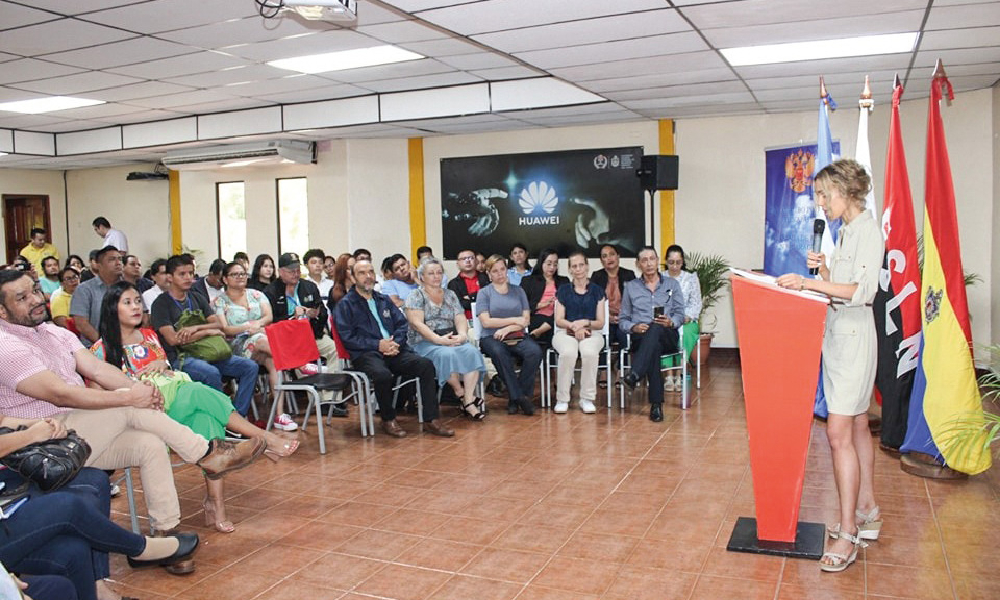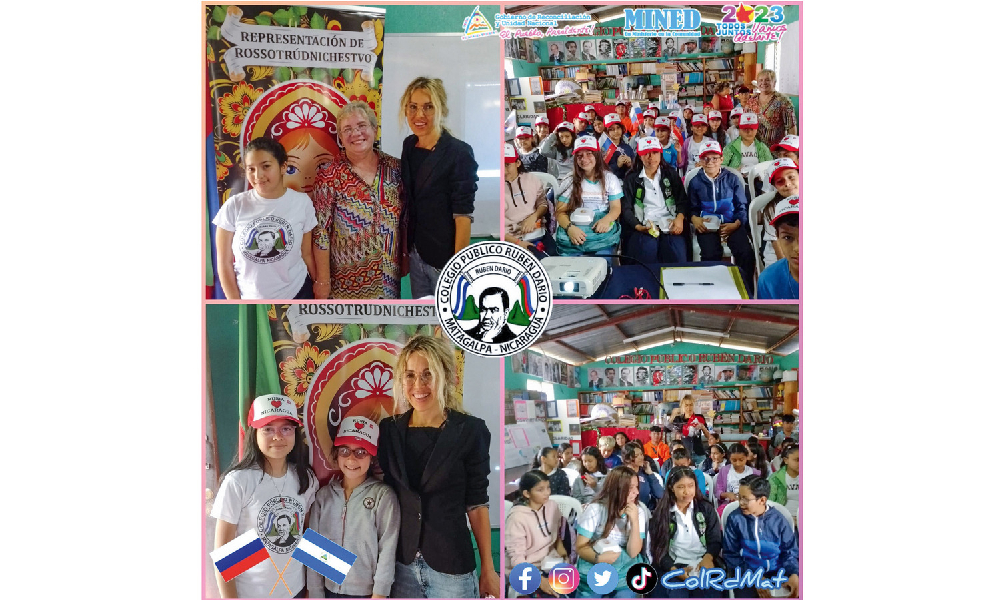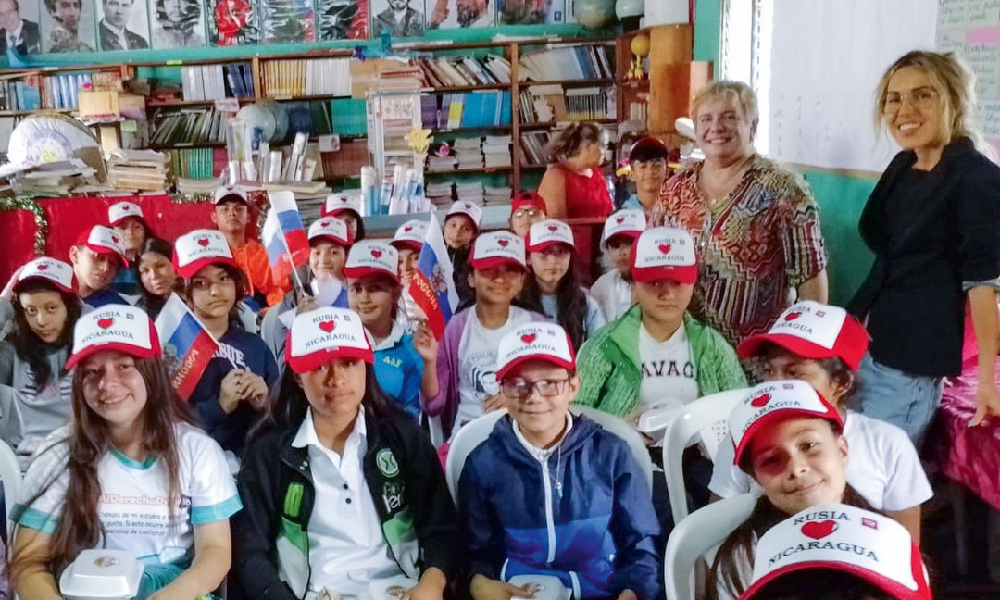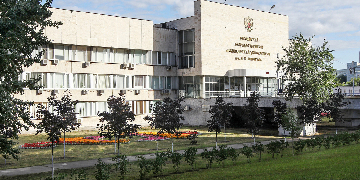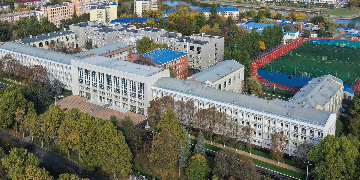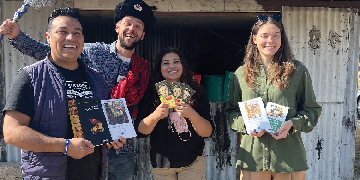Russia and Nicaragua have an almost 80-year history of diplomatic relations. Over this period, Soviet and Russian universities have trained several thousands of specialists for Nicaragua. Despite the distance, our countries are strategic partners. The HED editorial team asked the Rossotrudnichestvo Representative in Nicaragua Sofia Kharbikh about how the enrollment campaign is held in this country, which fields of study are chosen by Nicaraguan applicants, and how humanitarian cooperation between our countries develops in general.
Education in Russia for Nicaraguan Citizens
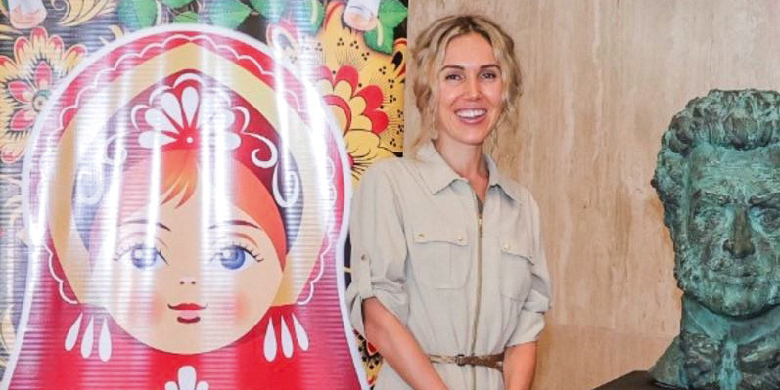
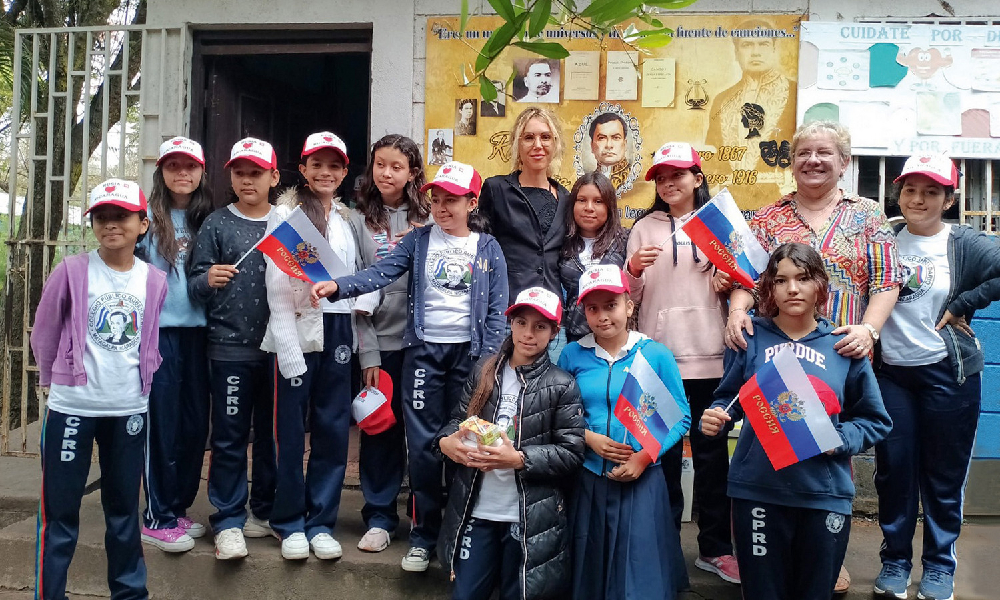
In Nicaragua, like in Honduras and Salvador (the countries of accreditation where our Russian House also holds an enrollment campaign to select students as part of the scholarship program), there is a considerable demand for education in Russia. Such interest is caused by as many as several factors.
- Firstly, education in Russia is rightfully considered high-quality and highly competitive.
- Secondly, the focus on strengthening relationships between our countries offers more and more prospects for graduate employment.
- Thirdly, the agreement on recognition of education and academic degrees between Russia and Nicaragua (the work on the similar agreements with Salvador and Honduras is in progress) came into effect in 2020.
Available scholarship programs
Nicaraguan citizens have the opportunity to get a Russian Government scholarship (quota). For the next academic year, Nicaragua will get 25 education quotas, which shows active growth dynamics. In 2022, Nicaraguan candidates were allocated 12 scholarships, and in 2023 their number was increased to 15.
Besides the government quota, there are special scholarship programs that allow Nicaraguan students to study in Russia for free. For example, with active participation of Rosatom State Corporation, we plan to establish the Center for Nuclear Science and Technology in Nicaragua. The project will need highly qualified specialists, and that is why Rosatom allocates four special scholarships to Nicaragua for the second year in a row. For the next academic year, the Federal Medical and Biological Agency also allocated ten special quotas for training personnel for the Latin-American Institute of Biotechnology MECHNIKOV, as part of the BioNICA educational project, which is being implemented at five Nicaraguan universities.
Of course, some Central American students go to study in Russia at their own expense, but their number is insignificant. The average level of income in this country is not high, in contrast to the total cost of studying, living, and transatlantic flight.
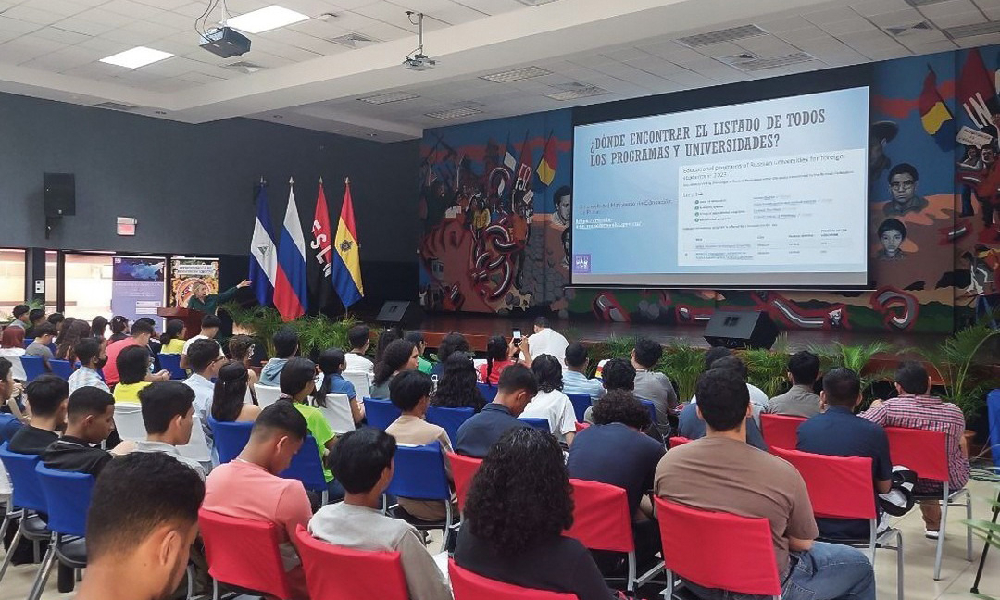
Enrollment campaign
Every year our Russian House in Nicaragua holds a far-reaching promotion campaign right before applications open. Besides numerous posts on our social media, we also hold offline events at universities, speak on local TV, and meet with the representatives of the Government and relevant ministries of our countries to coordinate our work.
The main criterion for selection of candidates from the Central American region is the average grade of their previous education. What is also taken into consideration is personal achievements over the two last years of study (scientific publications, participation in academic conferences, symposia, congresses, social performance, and letters of recommendation). Motivation and further career plans of candidates can also become a compelling argument in their favor.
The most popular fields of study include:
- Medicine
- Biotechnology
- Information Technology
- Agriculture
- Engineering
- Space Sciences
- Mining Engineering
Some candidates choose creative specialties, wishing to connect with the richest Russian cultural tradition. This is not surprising, taking into account the special creativity and, I would even say, poetry of the people of Ruben Dario*.
*Ruben Dario – (January 18, 1867 – February 6, 1916) Nicaraguan poet, one of the most brilliant modernists in Spanish-language literature.
Humanitarian and educational mission
In the region, we make active efforts to establish bilateral academic, cultural and humanitarian cooperation aimed primarily at implementing mutually beneficial bilateral (and regional) projects. And the more such relations we will manage to establish, the more highly qualified specialists with the knowledge of Russian language we will need.
Promotion of inter-university cooperation is an important part of our educational activities. The Russian House provides active assistance to Russian educational institutions that have practical cooperation proposals from Nicaraguan universities.
In Nicaragua, Salvador, and Honduras, there is a certain demand for studying Russian, and we provide active assistance in organizing offline and online Russian language teaching projects. The country has the successful Russian Center established by the Russkiy Mir Foundation at the National Autonomous University of Nicaragua. This year, the Open Education Center was established in the city of Jinotepe. Besides, for the second year in a row, we offer a successful 8-month distance Russian language course for Nicaraguans organized by St. Petersburg State University.
Twinning is worth mentioning as a separate point. And here we cannot pass over the great efforts made by our Russian House to practically implement the twinning agreement between the city of Leon and the Kronshtadtsky District of Saint Petersburg and the twinning agreement between the Ruben Dario School in the city of Matagalpa and School № 45 in Sevastopol. In this area, we regularly hold various cultural events, photo exhibitions, and presentations.
This year, we have also managed to conclude a twinning agreement between the Nicaraguan city of Granada and Yalta in Russia. We look forward to the visit of the official delegation of the Crimeans to solemnly sign the agreement and elaborate on its roadmap. We hope to coincide the opening of the picturesque photo exhibition about Yalta and Crimea in general at one of the partner venues in Granada to the arrival of the delegation.
On a regular basis, the Rossotrudnichestvo Representative Office and the Russian Embassy hold festive events dedicated to Shrovetide, March 8, the 80th anniversary of the Battle of Stalingrad, Cosmonautics Day, Victory Day, Pushkin Day and Russian Language Day, Russia Day, and Russia-Nicaragua Friendship Day. At the annual Gastronomic and Cultural Festival in Nicaragua, we familiarize visitors with the samples of ethnic arts and crafts and traditional foods, hold quizzes testing the knowledge of Russia and its peoples, and organize creative performances.
In April-May 2023, through joint efforts of the Russian Embassy and the Russian House, we managed to organize some concerts of Russian musicians such as pianist Marina Kosterina and flutist Viktor Khotulev at the national theaters of Honduras, Salvador, and Nicaragua. In celebration of the 100th anniversary of Leonid Gayday, a screening of the director’s outstanding movies was organized at the National Cinema Library of Nicaragua. By the way, the Mosfilm Cinema Week has been recently held at the same place.
And the list could go on. We have a lot of work to do. The work is interesting, and most importantly, rewarding as Nicaragua – a strategic and, one can say, a spiritual “compañero” of Russia – is willing to support any of our initiatives and proposals. And what is most important here is that cooperation is based on genuine interest in and respect for Russian culture, language, and science.
In summary, our work is in full swing, and we are not going to slow down.
